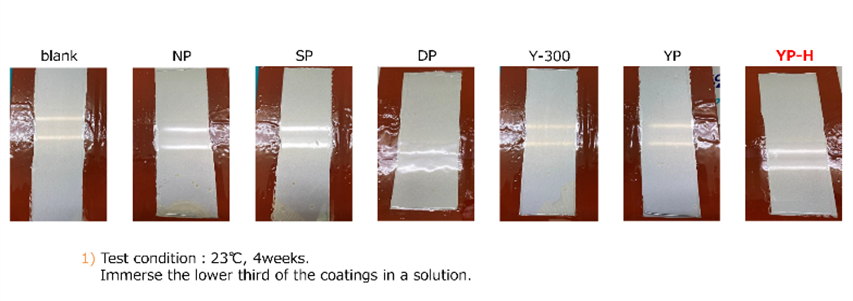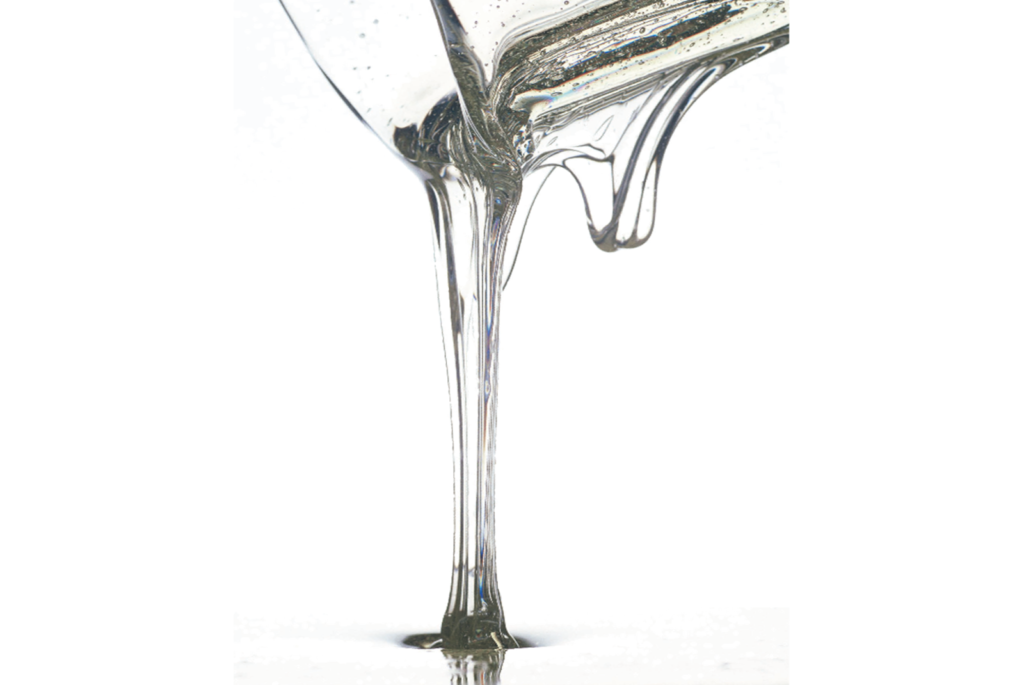About NIKANOL
NIKANOL is a xylene resin obtained by the reaction of m-xylene and formaldehyde.
It has excellent compatibility with various resins (epoxy resin, acrylic resin, urethane resin, rubber, etc) and organic solvents, and contributes to improved flexibility, adhesion, and chemical resistance.
As an example of a major application, the addition to epoxy resin coating is introduced here.

Among NIKANOL products, Y-300, YP, and YP-H, which are the liquid with a good handling, are introduced here.
Y-300 has a low viscosity and a high transparency, and is expected to replace benzyl alcohol. On the other hand, Y-300 reduces the reactivity of epoxy resins, suppressing reaction heat and extending pot life. It is also expected to improve the flexibility and adhesion of the coating film.
YP does not significantly affect pot life and contributes to improved coating film flexibility.
YP-H has an accelerating effect on the epoxy reaction and compensates for drying properties, especially at low temperature. In addition to improving the flexibility of the coating, YP-H is expected to improve water/chemical resistance.

Product properties of each additives are shown. Other phenolic additives with curing accelerating properties are also listed.
The use of nonylphenol and other phenolic additives has been restricted in recent years due to environmental hormone concerns.

Compatibility of various NIKANOL products with epoxy resin raw materials. It has excellent compatibility with major epoxy base materials and amines, so it can be expected to be applied in a wide range of applications.

This technical data was evaluated by adding 10 phr of various additives to a base resin made from bisphenol A liquid epoxy.
jER828:Mitsubishi Chemical Corporation

Regarding the pot life of epoxy mixtures, the addition of Y-300 (yellow) and YP (orange) can greatly reduce a heat generation.
YP-H (red) provides reaction acceleration properties similar to other phenolic additives.

The drying time of various epoxy resin coatings is shown below.
Y-300 and YP can be expected as modifiers that can extend the drying time of coatings, while YP-H, like other phenolic additives, can be expected to shorten the drying time of coatings in low temperature environments.

These are the coating film properties of various epoxy coatings.
The addition of each additives is confirmed to improve flexibility (Erichsen test).

In low temperature environments, NIKANOL additive coated films have excellent impact resistance.
Adding NIKANOL products maintains flexibility and improves impact resistance.

The addition of YP-H is expected to improve coating defects such as brushing during curing in high humidity environments. This is thought to be due to the hydrophobic effect of xylene resin as well as the curing accelerating property of YP-H.
Chemical resistance 10% H2SO4 aq

The chemical resistance of the coating film is shown below.
After immersion in a 10% sulfuric acid solution for 4 weeks, chemical damage such as spot rusting from the underlying steel plate and a decrease in the gloss of the coating film occurs. However, we have confirmed that these chemical damages are suppressed by adding YP-H.
Chemical resistance 10% NaOH aq

Coating with YP-H improves resistance to 10% sodium hydroxide solution.
Chemical resistance 5% Salt spray

The 5% salt spray test confirmed that the coating with YP-H exhibited the best resistance in terms of gloss retention, corrosion resistance, and inhibition of peeling at the cut edge.


